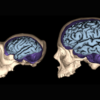In their published findings in Nature, Mount Sinai researchers discussed how the immune system and the central nervous system may play a major role in amyotrophic lateral sclerosis (ALS).
“Amyotrophic lateral sclerosis-4 (ALS4) is characterized by juvenile onset and slow progression. ALS4 is caused by mutations in the senataxin gene (SETX),” the authors elaborated in their report.
“Here, using Setx knock-in mice that carry the ALS4-causative L389S mutation, we describe an immunological signature that consists of clonally expanded, terminally differentiated effector memory (TEMRA) CD8 T cells in the central nervous system and the blood of knock-in mice.”
“Our results provide evidence of an antigen-specific CD8 T cell response in ALS4, which could be used to unravel disease mechanisms and as a potential biomarker of disease state.”
The findings, which suggest that immune signatures may help distinguish varying forms of ALS, could signify important progress in the development of more personalized treatments to specific subgroups of patients.
“Our discovery of a link between the immune and central nervous systems in ALS4 disease has immediate implications for other types of ALS, other neurodegenerative disorders, and for cancer.”


